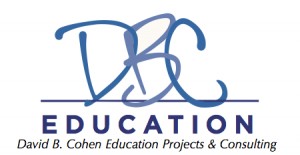The Education Department put out a press release today signaling a noteworthy shift in their education policies pertaining to standardized testing; it looks like the kind of change many of us have been calling for throughout the Obama-Duncan administration. It looks like vindication for California’s education policies and leaders.
Governor Jerry Brown, State Superintendent Tom Torlakson, and the State Board of Education under its President Mike Kirst have helped the state find ways to de-emphasize test scores for school accountability, avoid using test scores for teacher evaluation in most cases, and eliminate double-testing at a time of transition between testing and accountability systems. At the time, Secretary Duncan and various education “reform” leaders criticized California’s approach. Will they temper or withdraw some of those objections now?
AFT President Randi Weingarten offered this reaction in a mass email: “It’s a big deal that the president and the secretaries of education—both current and future—are saying that they get it and are pledging to address the fixation on testing in tangible ways. Yes, the devil is in the details, but today it’s clear: Parents, students and educators, your voice matters and you were heard.”
The timing of this announcement is interesting. Arne Duncan has announced he’s stepping down as the Secretary of Education. It seemed like he championed the use of standardized test data at virtually every step, for every purpose. The obscene malpractice that resulted in gung-ho education-reforming states like New York and Florida didn’t seem to make a dent in Duncan’s approach – until now, perhaps. Duncan’s successor, John King, is every bit as associated with this kind of test-obsessed accountability from his time as the Chancellor in New York. Maybe we’ll find out more later about who within the administration pressed for these changes at this time.
Here’s a U.S. News article about the announcement.
Here are a few choice quotations from the press release, which you can and should read in its entirety:
- “In too many schools, there is unnecessary testing and not enough clarity of purpose applied to the task of assessing students, consuming too much instructional time and creating undue stress for educators and students. The Administration bears some of the responsibility for this, and we are committed to being part of the solution.”
- “Moreover, low-quality test preparation strategies must be eliminated. States, districts, and educators should eliminate “drill-and-kill” test prep that is a poor use of students’ and educators’ classroom time. Students do best on high-quality assessments that actually measure critical thinking and complex skills when they have been exposed to strong instruction, which should be the focus. Districts should take concrete steps to discourage and limit the amount of test preparation activities.”
- “States and districts should also ensure that assessments are only used for the purposes for which they were intended and designed.” [This is a key tenet of assessment validation, and one that has always been a severe impediment to the idea of using student learning assessments as teacher effectiveness measures].
- “President Obama has directed the Department of Education (the Department) to review its policies to address any places where the Administration may have contributed to the problem of overemphasis on testing burdening classroom time.”
- “The Department will work with local teachers and principals to develop and provide guidance to states and districts on how to engage educators to review the quality and quantity of local assessments.”
- “The Department will work with states that wish to amend their ESEA flexibility waiver plans to reduce testing in grades and subjects that are not subject to federal testing requirements and/or find alternative ways to utilize evidence of student outcomes in the evaluation of teachers, especially in non-tested grades and subjects, while still maintaining teacher and leader evaluation and support systems that include growth in student learning.” [Sounds like a small step in the right direction. The part about non-tested grades and subjects is vital. As for “growth in student learning,” that will continue to be a problem as long as teacher evaluation in tested subjects and grades continues to be tied to test results, as that approach still violates the aforementioned principle regarding validation].
- Draft policy to evaluate teacher training programs “required that states place a significant weight on growth in student learning, including growth on statewide standardized tests in evaluating these programs. In the coming weeks, we will release a final rule that maintains a focus on student learning, but provides states flexibility on how to weigh the results of statewide standardized tests and measures of student learning more broadly in any teacher preparation accountability system that it develops.” [Again, a partial victory. They seem to recognize the problem but can’t quite bring themselves to back off entirely from a bad idea].
- “Congress should ensure that states and districts use indicators of student success beyond just standardized tests for the purposes of holding schools and educators accountable for student progress, provided that, for schools, such measures cannot outweigh any individual measure of academic outcomes (achievement and graduation rates).” [Another partial victory, recognizing a problem the federal government helped create but still trying to manage accountability from Washington, D.C.].
I’m cautiously optimistic, and want to give the Education Department credit for admitting mistakes and proposing solutions. There’s still a chance that this mostly turns out to be minor, cosmetic changes applied to policies that remain at their core dedicated to the same basic idea that we need test scores as the ultimate objective measure of success, as the lever for policy, as the justification for threatening lower-performing institutions and scaring them into improvement. What do you think?



I am also cautiously optimistic, David. I want to believe that this signals a turning point. The bigger wonder is what ‘teeth’ this will have for shifting policy that impacts schools and teachers.
The timing is certainly curious…almost like those last-minute presidential pardons made right before vacating of the oval office.
Better than nothing, or better than “full steam ahead.” It gives us something to work with for state and local level advocacy, I hope.
I concur. The very thought, not to mention the reality, of students, K-12, averaging some 112 standardized testing regimens, staggers my imagination. Though it will date me badly, during my K-grad school days, I took exactly TWO such tests.